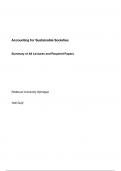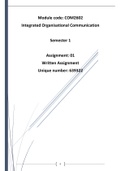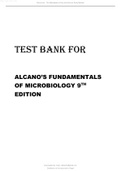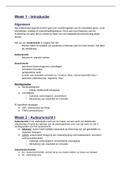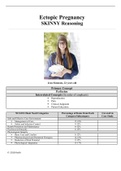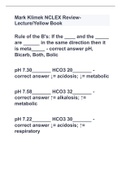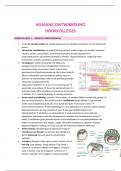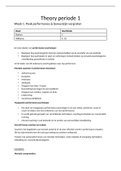Samenvatting
Accounting for Sustainable Societies: Summary of lectures & articles
- Instelling
- Radboud Universiteit Nijmegen (RU)
Summary of the course 'Accounting for Sustainable Societies'. This course used to be 'Topics in Business Economics'. Contains contents of all lectures, as well as all the required articles.
[Meer zien]
